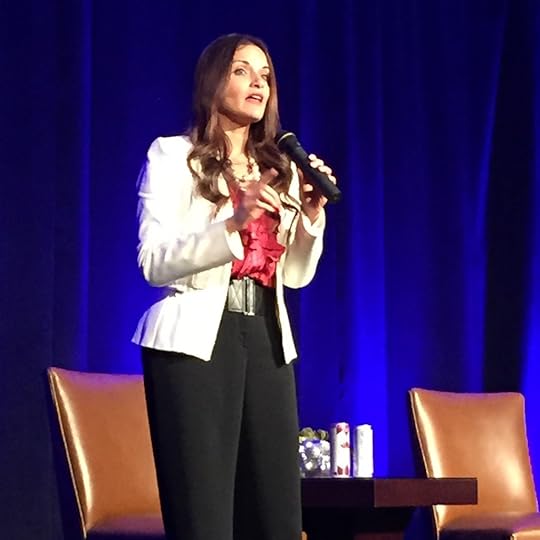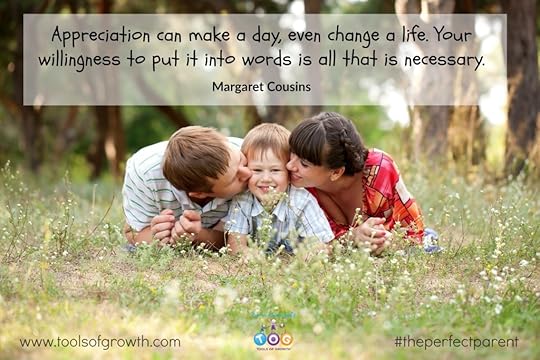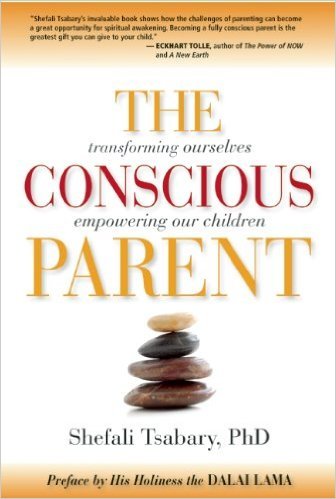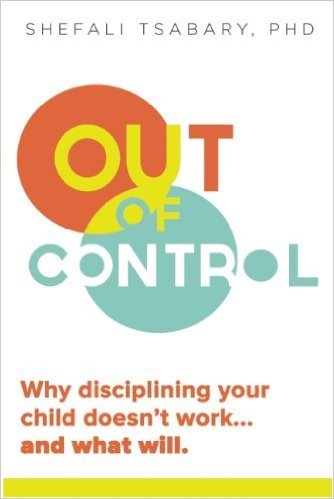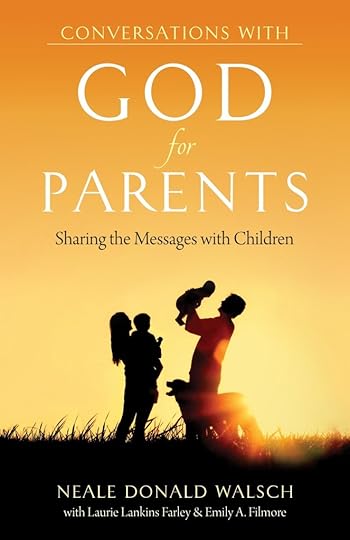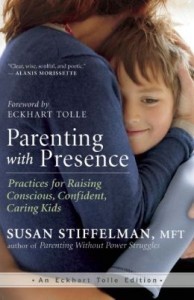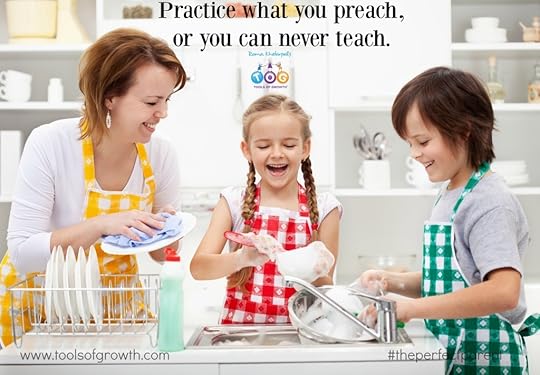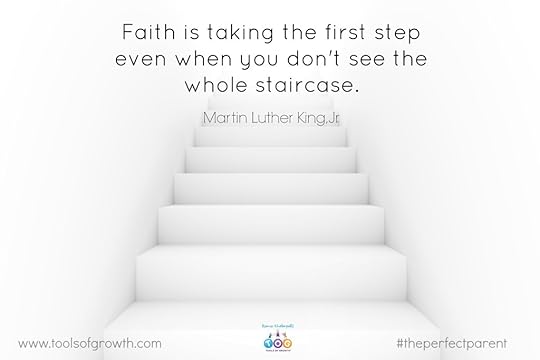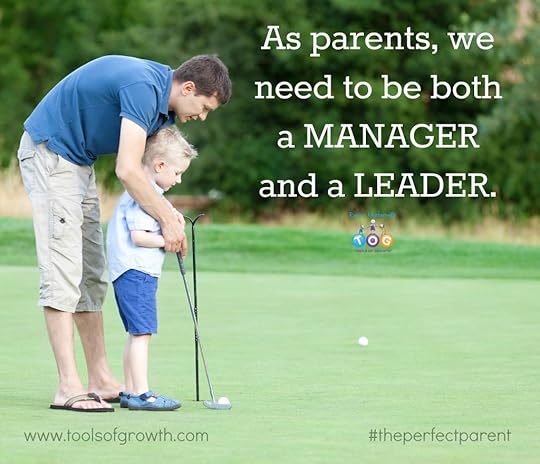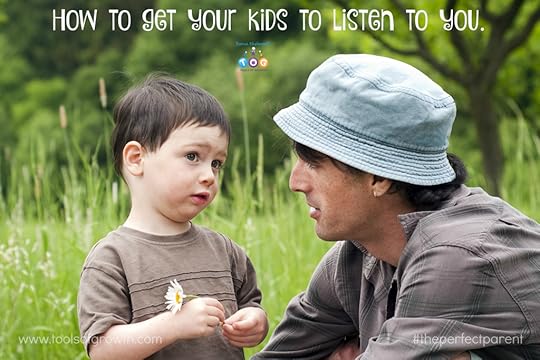Roma Khetarpal's Blog, page 22
December 24, 2015
Holiday Reflections on Love
We fulfill our kids’ wants before we fulfill our own.
We address our kids’ feelings before we address our own.
And, in a heartbeat, our kids would do the same for us.
In this beautiful ride together with our children, their love for us is just as selfless as ours for them.
Their love is a reflection of our own.
Here’s some tear-jerking proof of that:
Happy Holidays to our TOG family.
Infinite love and gratitude for your support.
In Joy!
The post Holiday Reflections on Love appeared first on Tools of Growth.
December 21, 2015
Take a Look Inside EVOLVE: The Conscious Parenting Summit
In her book The Conscious Parent, Dr. Shefali Tsabary says, “When you parent, it is crucial you realize you aren’t raising a “mini me” but a spirit throbbing with its own signature. For this reason, it’s important to separate who you are from who each of your children is.”
So true! We can all agree with that! How would we raise good citizens of the world if, with our children, we simply cloned ourselves—without strengthening what I like to call their inner core intelligence, that is, the necessary life skills of self-reliance, self-respect, self-love, independence, and self-confidence. We all know that our kids have their own journey, which they create by their choices and life experiences. As parents, our only job is to surround our children with an environment that is conducive to and aligned with this type of growth.
Why, then, do we—very much like children ourselves—bicker, argue, push back, fight, throw tantrums, and deliver harsh consequences when faced with parenting challenges? More often than not, the guilt, doubt, worry, and fear that follows such behavior is the sound of our inner voice telling us that we have veered away from the goal of soothing our child or resolving an issue constructively.
What stands in the way of our building a connection with our kids during a communication breakdown? WE DO! As Dr. Shefali signals in my opening quote, the answer lies in “the importance of separating who you are from who each of your children is.”
That may sound complicated, but during the recent Evolve: The Conscious Way parenting summit, Dr. Shefali actually deconstructed, very simply, the chaotic workings of our own inner world, which often stand in the way of communication with our kids. She mesmerized the audience of more than 200 parents, candidly leading them through a series of workshops that not only helped them identify some of their old, broken parenting models but also helped them reconstruct new ones, turning challenging moments into opportunities for deep connection.
The eye-opening questions she addressed included:
What does “being a conscious parent ” really mean?
What does our inner world look like? How does it stand in the way of communicating effectively with our kids? Why does it stand in our way?
What are our emotional triggers?
Which of our own childhood disconnections are reflected in our parenting habits? How can we change them?
I was honored to be part of the event as Master of Ceremonies and Moderator, along with the dynamic motivational speaker, Aric Bostick. During panel discussions with Dr. Shefali, Susan Stiffleman, Jolette Jai, the Atomic Moms, Bryant McGill, Mallika Chopra, and, yes, Neale Donald Walsch and his co-authors Laurie Farley and Emily Filmore, I had the pleasure of speaking from the audience’s perspective, addressing hot topics such as:
the effects of media on family life and guidelines around media usage;
being authentic with our kids (taking their gadgets away for breaking rules about them, while not following the same guidelines ourselves);
for parents who do not practice a particular faith, should they bring up conversations about God or wait until their children raise the topic.
Each speaker answered with his or her unique perspective. Then Dr. Shefali tied everything together with her humorous, forthright observations, which, of course, left the audience thirsty for more!
Despite being a parent of adult children, I, too, left with a raised level of consciousness that went beyond aha! moments during the weekend summit and has created a higher threshold from which I will parent seamlessly and naturally.
The way I saw and experienced it, this event was a coming together of mindful parents who had either signed up for the conference looking for concrete ways to resolve specific issues with their children, were questioning their parenting skills, or simply looking for inspiration to grow. Dr. Shefali extemporaneously grabbed their attention and brought them all into the next phase of their evolution: from mindful parents looking for tools, to conscious parents fully empowered and equipped to meet the challenges of parenting.
I honestly can’t wait for the next EVOLVE summit. Inside sources tell me it will take place in October 2016. I promise to keep you updated. In the meantime, if you’d like to join this community or have any questions, please feel free to comment below.
The post Take a Look Inside EVOLVE: The Conscious Parenting Summit appeared first on Tools of Growth.
December 14, 2015
The Gift of Appreciation
Two weeks until Christmas and the count down begins! Some of us parents are looking forward to the big day and some of us can’t wait for it to be over! Giving material gifts definitely does not come easy, thanks to busy malls, packed parking lots, crazy traffic, kids out of school, family flying in, prepping for Holiday meals, and wrapping a gazillion presents. As we all know, it can all get daunting and exhausting!
So here’s a quick, easy tip that costs nothing, doesn’t even require you to leave your house, and serves as a stress-reliever, mood-lifter, and happiness booster: The gift of appreciation!
On each of the gifts that you are giving your children, add one — just one —phrase or sentence of appreciation: “Thank you for helping me pick Grandma’s gift,” or “Your smile makes it all better,” or simply, “I’m blessed to have the gift of YOU.” These quick notes will put a smile on your kids’ faces and also on their hearts! But the bigger gift is the one you will give back to yourself instantly! You will fill your own heart with warmth and put a smile on your own face, too!
Appreciation truly has a boomerang effect; the feeling that you give out comes right back to fill your own heart as well! What a great way to put the brakes on the busy-ness of the season, salvage the spirit of the holidays, and genuinely feel the gifts of life that really matter!
Happy holidays to all TOG fans and their families! We really appreciate all the love and support that you have given us this year. And yes, by appreciating you, I’m feeling good right now too 
In Joy!
The post The Gift of Appreciation appeared first on Tools of Growth.
December 10, 2015
A Transformative Weekend of Conscious Parenting with Dr. Shefali
Evolve: The Conscious Parenting Summit
This past weekend, this first of it’s kind conscious parenting summit was held in Long Beach, California. Created by Dr. Shefali Tsabary, author of The Conscious Parent and Out of Control, the event was unique in that it brought over 200 parents into one place to listen to some of the most respected authors in their field discuss how to become a better parent. This wasn’t a “parenting” summit… it was a “parent” summit. This time is was all about us… how WE can take the steps to reach a more conscious level within ourselves, and therefore become a more present and enlightened parent to our children.
The energy was empowering and the emotions sometimes raw, but each attendee came away with a lighter heart and a more open mind, ready to take the tools from the weekend and transform the way they communicate with their kids.
With the holidays quickly approaching, we’d love to suggest some reading material from some of the authors/speakers at the Summit, either for yourself or to give as gifts. Parenting is the most important job we’ll ever have. Let’s make sure we are giving our children what they need to thrive.
The post A Transformative Weekend of Conscious Parenting with Dr. Shefali appeared first on Tools of Growth.
November 30, 2015
Be a RULE Model as well as a ROLE Model
My well behaved niece Vaani, 7 years old at the time, had come to spend a couple of days with us during her summer break a few years ago. I decided to go over some basic rules with her like picking up her plate after a meal, keeping shoes off the couch and furniture, etc…you know, the usual list of rules that us parents like to impose on our kids. She carefully listened at first. When I was done, she asked, ” Why do kids have to follow rules?”. My first response was, “Rules help kids behave responsibly and respectfully so that everyone can get along and enjoy each other’s company.”
That evening, after a nice family dinner, I sat with Vaani to turn on a movie while my husband watched TV in another room. As we got comfortable with our blankets on the couch, she said, “Aunty, do adults have rules too?”. “Of course!”, I answered.
“Do they have the same rules as kids?”, she asked.
“Absolutely!”, I reassured her.
She then went on to say something quite interesting….”Then how come Uncle Harry is not being responsible and respectful? He didn’t pick up his plate AND if you go look, he’s watching TV with his legs stretched out on the table AND he has his shoes on!” she exclaimed as her little eyes popped in astonishment!
BUSTED! By a 7 year-old! Parents BEWARE…they are watching. They are smarter than we can ever imagine. It is as important to be a “Rule Model” as it is to be a role model. In fact, part of role modeling is rule modeling.
So here are my TOP 3 basic rules that we, the parents, the role models, set for our kids that we must “rule model” as well. The long term consequences of these could be a lot worse than “shoes on the table”!
1. Foul Language: Switch all the inappropriate four letter words so they are not used back at you when the kids are mad. Build a clean, age-appropriate vocabulary for your entire family. When you’re not mad, work on finding alternate words for your times of frustration and anger…for example, some great choice words include: “WOW!”, “REALLY!”, “UNBELIEVABLE!” or better yet, use sounds to fill the space like “UHHH!”, “HMMM”. OR a big grunt always works for me. Sounds help you buy time and release negative energy while tuning down your emotions and responses.
2. House rules: Need I explain? If so, please refer to the example above!
3. Texting while driving: No matter how old they are, they’re watching! If you think you can get away with it once in a while…so will they. Be Mindful.
Simply put: PRACTICE WHAT YOU PREACH OR YOU CAN NEVER TEACH.
The post Be a RULE Model as well as a ROLE Model appeared first on Tools of Growth.
November 23, 2015
Have Faith – During Thanksgiving and All Year Through
We have faith that the sun will rise tomorrow morning and set in the evening. We have faith that the food we eat will digest and turn into all the necessary ingredients we need to keep our bodies alive.
In essence, faith is a “knowing” or a “given” or a “belief beyond doubt.” It is a natural feeling of trust. It is the kind of trust, knowing, belief, or faith, that we need to have in our ability to parent. We must know that the time and effort we are putting into our kids today will bear its fruit tomorrow. We must believe beyond doubt that the decisions we make are always in their favor. We must take it as a given that every mistake that we, or they, have made along the way propels us in the forward direction.
Life is designed to move forward and carry us with it. Along the way, we assume several roles; we become children to our parents, friends to our friends, neighbors to our neighbors, student to our teachers, spouses to our partners, and then parents to our children. We truly do get a lot of practice before we assume the role of parent, and yet it is the only role that breeds the most self doubt. Why? Because we’re afraid. We are afraid to make the wrong decisions; we are afraid of hurting our children; we are afraid that they might not turn out okay, and so on. We let fear taint our natural confidence of parenting.
Martin Luther King, Jr. said, “Faith is taking the first step even when you don’t see the whole staircase.” In parenting, that first step is having faith in yourself.
Trust yourself; believe in yourself. Have faith that your children will turn out to be just as beautiful, compassionate, and loving as you are.
This holiday season, the best way to celebrate your gifts, your children, is by having faith in yourself and your natural ability as a parent.
You are equipped. Know it, live it, breathe it.
The post Have Faith – During Thanksgiving and All Year Through appeared first on Tools of Growth.
November 17, 2015
The Paris Attacks: Using Sad News to Spark an Open Discussion
The news was devastating. Terrorists attacked multiple locations in Paris and killed more than a hundred innocent people. What happened is almost incomprehensible.
While we try to shield our children from such horrors in the world, it’s impossible to protect them from everything they hear when they are outside of our home. And while kids may hear about news like this, they don’t always understand it. How then do we answer their inevitable questions and concerns?
What happened, Mommy?
Did people get hurt?
Are there bad men out there?
I’m scared.
Here are some tips for communicating with your children during and after a tragedy.
Very Young Children
Be honest: Encourage them to talk about their feelings and ask their questions. Pretending these events aren’t a big deal will only confuse them more. While it might be hard for you, as an adult, to understand what is happening, your children rely on you to be honest with them.
Make them feel safe and secure: Be their safe haven. Let them know that your home is their sanctuary, and they are safe there.
Manage exposure to content: Limit the amount of news they see on TV and online. Sometimes a simple, “There are some bad people in the world, but the majority of them are very good,” is enough to ease a child’s mind.
Middle School Children
Open up discussions: While it’s harder to limit what your middle school kids hear online and at school, ask them if they have heard the news and if they have any questions. Sometimes they may feel that they are old enough to handle bad news. Let them know it’s still okay to talk to you about their feelings.
Educate kids: Take the opportunity to study a map of the world with them and pinpoint the locations they have been hearing about.
Keep the lines of communication open: If your child doesn’t want to talk about events, know when to back away. Let them know you are available if and when they have questions.
High School Children
Manage emotions: Your teenager probably thinks he or she knows everything there is to know, but that doesn’t mean they aren’t feeling a little upset or scared. Let them know that it’s okay to be afraid and unsure. Violence and killing is scary. In deciding whether to share details or not, go at their pace. They will let you know if they are ready to talk about the news.
Be watchful: Watch for signs of depression. Bad news can sometimes get the best of us, and it’s not uncommon to feel hopeless about the situation. Make sure your teen isn’t hiding his or her real feelings.
3. Validate their emotions: It’s okay to share that you are feeling a little scared or angry as well.
No matter how old children are, they should know that we all come together in times of tragedy. Reach out into your own communities and nationally to get involved with organizations helping victims and families.
You can also use this as an opportunity to discuss different types of emergencies, whether natural or manmade. Create a family emergency plan, and make sure your kids know who they can contact if you aren’t around. Encourage them to participate in being part of the solution. It will help build empathy and teach them kindness and compassion.
The post The Paris Attacks: Using Sad News to Spark an Open Discussion appeared first on Tools of Growth.
November 9, 2015
Parenting Means We Need To Be a Manager AND a Leader
“The manager has a short-range view, the leader has a long-range perspective.” – Warren Bennis
This quote always reminds me of our role as parents. We are both the manager and the leader in raising our children.
As managers, our short-range view helps us do it all: get homework assignments done, pay attention to projects that are due, get them to their committed activities, make it to school events, get meals ready, and of course the list goes on and on. We are right on target as managers as we groom our children’s intellectual, social, and physical well being.
However, in more ways than one, we are also our children’s leaders. We lead them through their challenges, we help them get back on their feet when they fall, we teach them the importance of good character and values, and we lead them back to good health when they are ill. This is how we nurture their inner well being; their emotions: through compassion, empathy, and kindness.
Yes, our children are happy because we help them manage their day-to-day lives but it is truly our leadership role that teaches them how to face life’s challenges and recover from the bigger, more important lessons of life. Our leadership is what adds the irreplaceable element of the long-range perspective of accomplishment and joy to their day-to-day happiness.
So in order to be effective parents, remember that we need both a manager’s short-range view and a leader’s long-range perspective. Better yet, while you are managing their day-to-day issues, lead by keeping the long range perspective in mind, every day. Be compassionate, empathetic, and kind while managing daily life. These are exemplary Tools of Growth to Raise Kids to Be Happy, Think Positive, and Do Good!
The post Parenting Means We Need To Be a Manager AND a Leader appeared first on Tools of Growth.
November 2, 2015
Two Top Parenting Challenges – Part 2
Last week we discussed one of the two top parenting challenges I am asked about most often:
How can I get my child to stop complaining?
Now let’s explore the second one:
WHY don’t my children listen to me, and HOW can I get them to start doing so.
This is, undoubtedly, a big concern with many parents. You’ve said the same thing over and over, and perhaps your children pretend like they don’t hear you, or they simply ignore you. Or maybe they don’t hear you because they are in a trance with their computer or mobile gadget. So first and foremost…
Be empathetic.
Put yourself in their shoes. If you were engrossed in something, wouldn’t your hearing be affected? Who wants to start doing homework, when you’re in the middle of texting with friends? Shifting gears and keeping track of time are both challenging for kids. And for a parent in the midst of a busy day, thinking of the tasks at hand and watching the clock at the same time leads to frustrations: “If he doesn’t finish homework by 6, he won’t make it to basketball practice on time, which means the coach will make him stay late and talk to us afterward about getting to practice on time. And that means we will be home late for dinner, and bedtime will be pushed off by an hour! Ugh!” Of course, the thought of that gets you riled up!
But kids don’t have that sort of foresight, so don’t take them there. It will only cause confusion and aggravation. If the aggravation is in your head, take two deep breaths and drink a few sips of water and then…
Make eye contact.
Use the magic of touch, if you are trying to get their attention. Touch them lovingly on the arm, and be sure to make eye contact when giving them direction. Science confirms that when we use our senses to connect with children, we can transform a communication breakdown into a communication breakthrough.
To make eye contact, lift your child’s chin up, or, better yet, come down to eye level to open the door to effective communication. Now you can…
Reason calmly.
“Homework before basketball practice—you know that. Please get started now. I’m sure you want to get to practice on time. You know how your coach gets when we show up late.” Mapping out the first steps and reasoning through them helps kids shift gears more easily, by letting them see only the task at hand. Keep in mind that your child may have had a long day at school or just simply needs to unwind. So whatever you say, however you reason, do it calmly and kindly. Reasoning shifts an impulsive reaction to an engaged, mindful, response. And that is what you want!
Remember, being a parent is not a dictatorship, it is a director-ship. When we direct kids mindfully, we are more likely to instill habits that will stick in the long term. And, most importantly, if you want kids to listen to you, be sure you champion that by…
Listening to them.
We discussed mirror neurons in the last blog. Yes, kids mirror the behaviors that they see. Be aware when kids are talking to you. Are you listening to them mindfully? Are you paying attention and responding immediately? Are they often tugging at you or speaking to you while you are busy on the phone or with your mobile gadget? Paying attention to how you well you listen to them is the simplest way to create good listening habits. Remember you are a rule model, just as much as you are a role model.
In Joy!
The post Two Top Parenting Challenges – Part 2 appeared first on Tools of Growth.
October 26, 2015
Two Top Parenting Challenges – Part 1
How can I get my child to stop complaining?
How can I get my child to listen to me?
These are the two top parenting challenges I am asked about most often, and since they’re both great questions and top-priority concerns, we are going to address them one at a time. This week, let’s talk about WHY kids complain so much, which will give us some insight on HOW you can get them to stop complaining.
Next week, we can discuss WHY children don’t listen and HOW you can get them to start doing so.
HOW CAN I GET MY CHILD TO STOP COMPLAINING:
Let’s first explore what the word “complain” really means. The Oxford Dictionary defines it as: “to express dissatisfaction, pain, uneasiness, censure, resentment, or grief; find fault.”
If you look closely, you’ll note that each one of the defining words is either a feeling itself or has a feeling hidden behind it. Before we explore the feeling, though, the first obvious step in addressing a complaining child is to:
Explore the WHY—
“Why do you think nobody cares about you?”
“Why do you think you are bored?”
“Why do you not want to do your homework?”
Once we know the answer to the WHY, we can easily tap into the feeling. Engaging the intellect with the WHYs helps balance emotions and opens the door to communication. Even if your kids say, “I don’t know why,” their statement is still an expression of an underlying feeling. Next…
Explore the feeling behind the complaint with a quick “Dealing with the Feeling” exercise. This emotional intelligence and emotional management tool is at the heart of the cutting-edge research explored extensively in my book, The “Perfect” Parent . The three steps of Dealing with the Feeling are:
1) Spot it—Spot the feeling behind the complaint: “I am bored.”
2) Say it—Say the feeling out loud: “I can see that you’re feeling sad that you have nothing to do.”
3) Okay it—Validate the feeling: “I understand how you feel. I feel sad when I’m bored too.” Or “It’s okay to feel bored sometimes.”
Now you can move to resolve. And remember to think outside the box: “When we are bored, it gives us a chance to be creative and think about what we can do to not feel bored. How about writing a letter to Grandma?”
This sort of proactive engagement with complaints teaches children how to self-manage their time. It also teaches children how to recognize, understand, and self-manage their own emotions, which is exactly what emotional intelligence is all about!
Last, and most importantly…
Be aware of your family’s complaint-terrain.
Research tells us that we are all equipped with mirror neurons and that children’s habits are, more often then not, learned habits. When parents complain, they activate the mirror neurons in children’s brains to mimic the behavior.
Also keep an eye out for family or friends—anyone your child spends a lot of time with—who complain unnecessarily. Whoever it might be, try a quick Dealing with the Feeling with them, so that they can begin to manage the emotions behind their complaints. You might also let them know that their habit of complaining is rubbing off on your child.
Yes, it may take a little practice, but what victory was ever achieved without effort? As Mahatma Gandhi said, “Satisfaction lies in the effort, not in the attainment; full effort is full victory.”
Besides, there are health benefits to this effort: Research from Stanford University suggests that a half-hour of complaining every day actually physically damages a person’s brain!
And if you have exhausted all of the above and gotten nowhere…
Turn on the gratitude switch!
Have kids see the light by expressing what they’re thankful for. This will surely take them from feeling the darkness of complaining to seeing the brighter side of what they can be grateful for.
The post Two Top Parenting Challenges – Part 1 appeared first on Tools of Growth.




